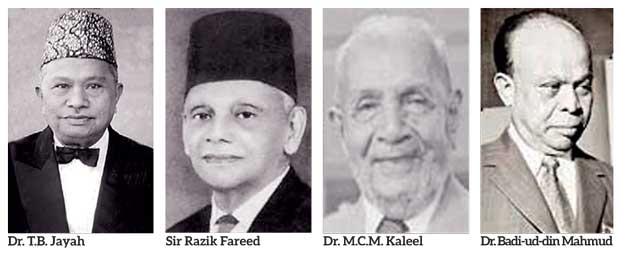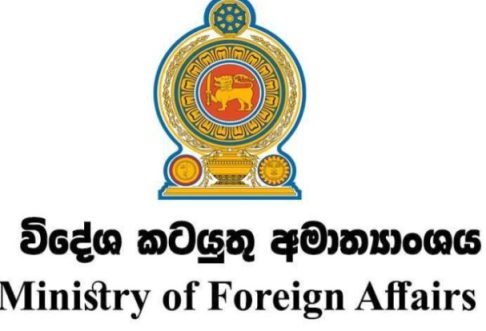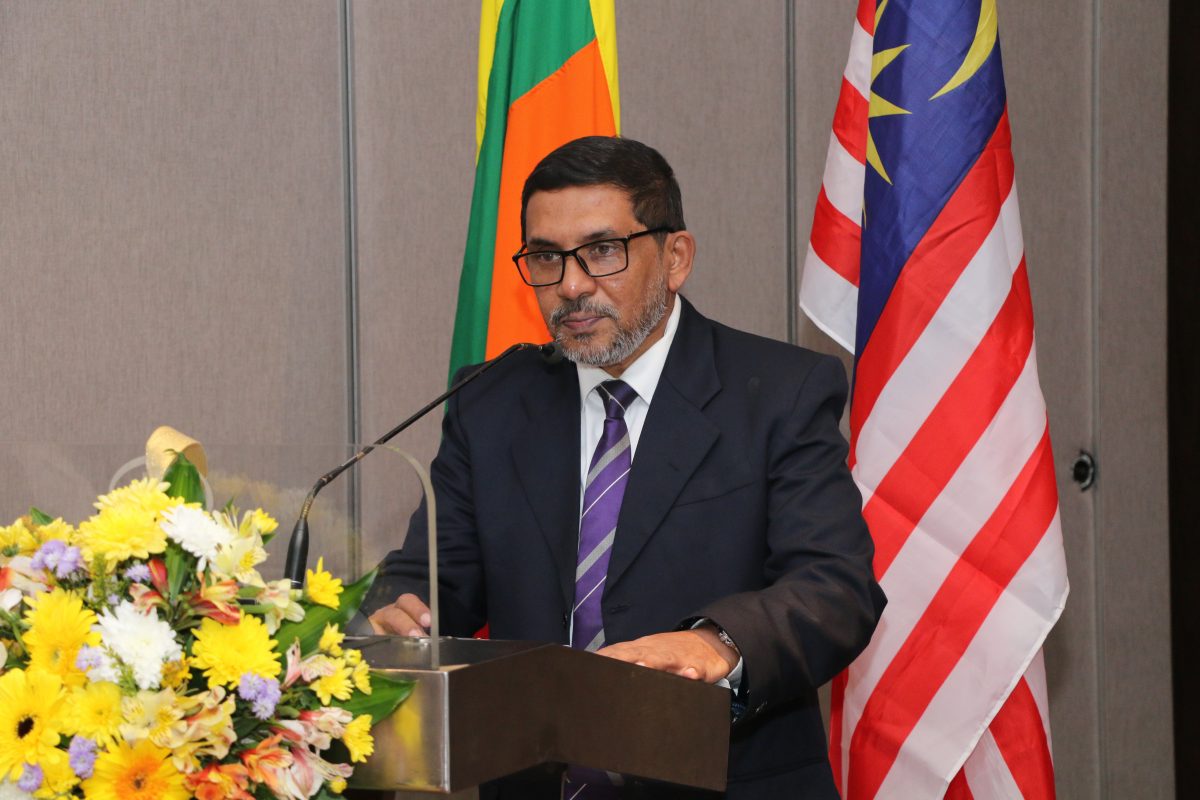Democracy is described as the best of the worst forms of government. Democracy does not mean holding elections alone. It means the existence of strong institutions which, like the pillars that hold up a building, strengthen democracy. Such institutions act as checks against abuse of power by elected leaders in whose hands people place a trust to govern them.
In reality, however, democracy is tottering in the post-9/11 era. The post-9/11 world order has dealt a death blow to democratic values.
To enumerate what these blows to democracy in the post-9/11 period are is not the purpose of this column. Yet a few need mentioning. They are: the lack of respect for human rights, the absence of transparency in governance, the state’s intrusion into the domain of private of life of the people and the enactment of laws that eat into individual liberty.
The 9/11 terrorist attacks on the United States took place at a time when liberal democratic principles were being given a pride of place in statecraft and in relations between states. Western European countries had recognized that crimes against humanity should be brought under universal jurisdiction, empowering their domestic laws to try even suspects who were not their subjects. Whether the crime took place within their territorial limits or outside did not matter. Western Europe was at the forefront of an international campaign that finally saw the setting up of the International Criminal Court to try war crime suspects. These countries also insisted on a clean human rights record for developing countries to qualify for foreign aid.
No remorse for million deaths
But 9/11 changed the outlook of western liberal democracies. Many a western country decided to compromise on democratic principles, curtailing individual freedom, ostensibly, to ensure national security. Some leaders even resorted to lies and deception and manipulated intelligence to serve their sinister motives.
The then US President, George W. Bush, presented half truths and hearsay as solid evidence to justify his decision to invade Iraq. Since assuming office in 2000, Bush had pressurized his intelligence chiefs to come up with evidence to prove that Iraq possessed weapons of mass destruction. His obsession with the plan to invade Iraq was such that when 9/11 happened, he wanted to attack that country. Saner counsel, however, persuaded him to attack Afghanistan first and then build up a case for an invasion on Iraq.
Today Bush is enjoying his life in retirement at his Texas ranch. He shows little or no remorse for the deaths of more than one million Iraqis in his Pax Americana adventure which he undertook to promote the interest of the US capitalist class. He believes the war was a command from God. Of course, it goes without saying that the American capitalists wanted to plunder Iraq’s oil wealth while the US rightwing wanted to play bully by establishing a permanent military presence in the troubled oil-rich region.
Ironically, in this exercise, democracy suffered the most in a country where it was thought to be the strongest. The US lost its moral authority to preach human rights and democracy. Its image remains tainted by the Baghram airbase massacre in Afghanistan, the sex torture in the Abu Ghraib prison in Iraq, waterboarding of terror suspects, outsourcing of torture to rogue states, the Gulag-style Guantanamo prison, the denial of legal rights to ‘terror’ suspects, indiscriminate bombing of civilian areas and the enactment of the Patriot Act, the abuse of which has led to the curtailment of individual freedom and racial profiling of America’s Muslim population.
What more proof does one need to show that democracy has suffered the most in the United States than the failure of the US system to try Bush? It was once believed that the US democratic institutions were so strong that they would hound the culprits until justice was done. President Richard Nixon was forced to resign for his role in the Watergate scandal. President Bill Clinton faced the impeachment process on charges of lying under oath before a federal grand jury about an affair with White House intern Monica Lewinsky. But Bush escaped.
In Britain, it is a different story.
 Tony Blair, the British Prime Minister who joined America’s war and earned the nickname Bush’s lapdog, last Friday appeared before the Chilcot Inquiry to answer questions on whether he misled the nation over the Iraq war. He was unrepentant and said he accepted “responsibility but not regret for removing Saddam Hussein”.
Tony Blair, the British Prime Minister who joined America’s war and earned the nickname Bush’s lapdog, last Friday appeared before the Chilcot Inquiry to answer questions on whether he misled the nation over the Iraq war. He was unrepentant and said he accepted “responsibility but not regret for removing Saddam Hussein”.
His argument was that the world was better off in 2010 without Saddam than it had been in 2003 with Saddam.
Former Minister Clare Short appearing before the Chilcot Inquiry days after Blair presented his case, accused him of lying and stifling discussion in the cabinet in the run-up to the war.
British Foreign Office lawyers who appeared before the Chilcot Inquiry said they felt that the war on Iraq was illegal but their protests fell on deaf ears. They said they were shocked when the then Attorney General, Lord Goldsmith, gave approval for the war after initial reservations. In recent months, British newspapers have published secret documents which showed that Britain and the United States had been holding secret talks for an invasion of Iraq long before they took the complaint against Saddam before the United Nations Security Council.
War of aggression
The Chilcot inquiry is no war crimes tribunal. Its terms of reference cover Britain’s involvement in the run-up to the war, the subsequent military action and its aftermath. Yet the setting up of the panel comprising Privy Counsellors gives a hint that there is still some life left in British democracy. Britain can boast of mechanisms that hold leaders accountable, despite the deadly blows to democratic values in the post-9/11 era.
Appointing the Chilcot Commission, Prime Minister Gordon Brown, under pressure from the vibrant media and a dynamic opposition, declared that no British documents and no British witness would be beyond the scope of the inquiry.
Blair, like Bush, depended on half truths and murky intelligence to justify his decision to join Bush’s war of aggression. A dossier which the Blair government prepared claimed that Iraq had “weapons of mass destruction” that could be deployed for attack “within 45 minutes.” Anti-war activists soon found that the dossier was not based on intelligence reports but on a research paper prepared by an Egyptian student.
When Bush and Blair decided to launch their war on Saddam’s Iraq, there was no proof that Iraq had any links with the terrorists who attacked the United States on September 11, 2001. They based their war cry on a fictitious claim that Iraq possessed weapons of mass destruction and therefore it could pose a threat to world security. While the shell-shocked American people who were still recovering from the horror of 9/11 believed the argument, a majority of the people in Britain refused to buy it. They scoffed at Blair as B-liar while hundreds of thousands joined anti-war demonstrations. Yet Blair did not budge. Some said that at a meeting with Bush, he even signed in blood expressing his strong support for the war.
A majority in Britain, like a vast majority in the rest of the world except the US, saw the war on Iraq as a war of aggression. According to an international law principle that gained universal recognition following the Nuremberg war crimes tribunal in the aftermath of World War II, planning, preparation, initiation or waging of a war of aggression or participating in such plan is a crime against peace.
At the Nuremberg trial, prosecutor Robert H. Jackson declared, “To initiate a war of aggression, therefore, is not only an international crime; it is the supreme international crime differing only from other war crimes in that it contains within itself the accumulated evil of the whole.”
The Chilcot inquiry is expected to submit its report by June this year. Will its ruling be like that of the 2004 Butler report which concluded there were intelligence flaws but made little or no criticism of Blair? Or will the Chilcot Inquiry hold Blair guilty and describe the war on Iraq as a war of aggression? If the answer to the second question is yes, then the verdict will have costly ramifications on Britain in terms of war reparations.
An inquiry held in the Netherlands on the lines of the Chilcot Inquiry also found that the war on Iraq was illegal. The Dutch inquiry expressed grave concern that commercial interests may have played a part in influencing the Dutch government’s decision to back the war. It transpired at the inquiry that Dutch business companies such as Shell had had talks with the British government and insisted that there should be a level playing field for all oil companies after the war. A former Australian foreign minister also acknowledged that it was oil which prompted his country to join Bush’s “Coalition of the Willing”.
All this underscores that the Iraq war was essentially an imperial war. Beneath the veneer of civilized society and sham democracy, there exists greed-driven barbarism.
Post Disclaimer | Support Us
Support Us
The sailanmuslim.com web site entirely supported by individual donors and well wishers. If you regularly visit this site and wish to show your appreciation, or if you wish to see further development of sailanmuslim.com, please donate us
IMPORTANT : All content hosted on sailanmuslim.com is solely for non-commercial purposes and with the permission of original copyright holders. Any other use of the hosted content, such as for financial gain, requires express approval from the copyright owners.
 Sri lanka Muslims Web Portal Sri Lanka Muslims News Center
Sri lanka Muslims Web Portal Sri Lanka Muslims News Center
 Donate
Donate


